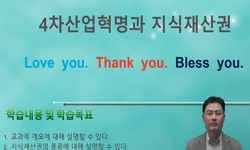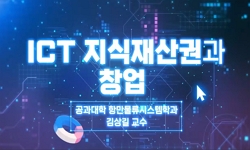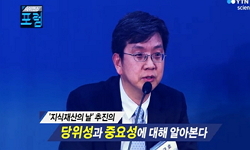법무부가 2011. 1. 11. 입법예고한 「남북 주민 사이의 가족관계와 상속 등에 관한 특례법 제정안」은 남북 이산가족의 가족관계 및 상속 등에 관한 분쟁과 관련하여 현행의 민법으로는 포섭되...
http://chineseinput.net/에서 pinyin(병음)방식으로 중국어를 변환할 수 있습니다.
변환된 중국어를 복사하여 사용하시면 됩니다.
- 中文 을 입력하시려면 zhongwen을 입력하시고 space를누르시면됩니다.
- 北京 을 입력하시려면 beijing을 입력하시고 space를 누르시면 됩니다.

북한 거주 상속인에게 상속회복청구권 제척기간의 연장특례를 인정하는 것에 대한 헌법적 평가 = Constitutional Analysis on Retroactive Extension of Statute of Limitations Concerning the Right to Relief of North Korean Residents As Heirs
한글로보기https://www.riss.kr/link?id=A60253378
-
저자
이인호 (중앙대학교 법학전문대학원)
- 발행기관
- 학술지명
- 권호사항
-
발행연도
2011
-
작성언어
Korean
-
주제어
상속회복청구권 ; 북한거주 상속인 ; 상속권 ; 재산권 ; 제척기간 ; 소급입법금지의 원칙 ; 신뢰보호의 원칙 ; The right to request for the recovery of inheritance ; The north korean residents as heirs ; Inheritance right ; Property right ; Statute of limitations ; The doctrine of prohibition of retroactive legislation ; The doctrine of confidence protection
-
KDC
340
-
등재정보
KCI등재
-
자료형태
학술저널
-
수록면
103-126(24쪽)
- 제공처
- 소장기관
-
0
상세조회 -
0
다운로드
부가정보
국문 초록 (Abstract)
필자는 이 헌법적 문제에 대하여 다음과 같은 논증을 통하여 합헌이라는 결론을 내렸다.
첫째, 남한의 부진정 혹은 참칭 상속인이 완성된 제척기간 · 소멸시효 · 취득시효의 효력에 의하여 얻는 이익은, 소급입법에 의한 재산권박탈을 금지하는 헌법 제13조 제2항에 의해서 보호되는 재산권의 개념에 포섭되지 않는다. 따라서 헌법 제13조 제2항이 적용될 여지가 없다.
둘째, 제척기간이나 소멸시효를 연장시키고 취득시효의 원용을 배제하는 특례가안은, 남한의 부진정 혹은 참칭 상속인의 시효의 이익을 창설적으로 박탈하는 형성적 규정이 아니라, 제척기간제도 · 소멸시효제도 · 취득시효제도에 본질적으로 내재하는 법리를 확인하는 것에 불과한 확인적 규정이다. 다시 말해서, 북한주민인 진정상속인이 자신의 권리의 존재 자체를 알 수 없었거나 알지 못하였고 설령 알 수 있었다 하더라도 권리를 회복하기 위한 구제수단을 사용하는 것이 원천적으로 불능한 남북분단의 상황에서는 제척기간 · 소멸시효 · 취득시효의 법적 효력이 본질적으로 발생할 수 없는 것이고, 따라서 이런 상황이 지속되는 기간 동안에는 시효의 완성이 성립될 수 없다고 보아야 한다.
셋째, 따라서 특례가안은 완성된 시효의 효력을 소급적으로 배제하는 진정소급입법이 아니라, 완성되지 않은 시효의 기간을 연장한 것에 불과하여 부진정소급입법이라고 보아야 한다. 그러므로 특례가안의 헌법적 평가에 적용될 심사기준은 완화된 형태의 신뢰보호의 원칙이다.
넷째, 결론적으로, 특례가안은 그를 통해 보호하고자 하는 공익이 남한상속인에 대한 신뢰보호의 필요성에 비해 더 커서 신뢰보호의 원칙에 위반된다고 보기 어려운 것으로 판단된다.
법무부가 2011. 1. 11. 입법예고한 「남북 주민 사이의 가족관계와 상속 등에 관한 특례법 제정안」은 남북 이산가족의 가족관계 및 상속 등에 관한 분쟁과 관련하여 현행의 민법으로는 포섭되기 어려운 문제들을 규율하고 있다. 그런데 법안 준비의 논의과정에서 위헌 여부 논란이 제기되어 위 입법예고안에서 빠진 헌법적 이슈가 있다. 즉 ‘분단의 특수성을 고려하여 북한 거주 상속인에게 상속회복청구권의 제척기간을 연장해주는 특례를 인정해주는 것이 헌법에 위반되는지 여부’가 그것이다. 이 문제의 기본쟁점은, 남한의 부진정 혹은 참칭상속인에게 이미 발생되어진 제척기간·소멸시효·취득시효의 효력을 배제하고 북한의 진정상속인에게 상속권을 회복할 수 있는 구제수단을 소급적으로 부여해주는 것이 헌법에 위반되는지 여부이다.
필자는 이 헌법적 문제에 대하여 다음과 같은 논증을 통하여 합헌이라는 결론을 내렸다.
첫째, 남한의 부진정 혹은 참칭 상속인이 완성된 제척기간 · 소멸시효 · 취득시효의 효력에 의하여 얻는 이익은, 소급입법에 의한 재산권박탈을 금지하는 헌법 제13조 제2항에 의해서 보호되는 재산권의 개념에 포섭되지 않는다. 따라서 헌법 제13조 제2항이 적용될 여지가 없다.
둘째, 제척기간이나 소멸시효를 연장시키고 취득시효의 원용을 배제하는 특례가안은, 남한의 부진정 혹은 참칭 상속인의 시효의 이익을 창설적으로 박탈하는 형성적 규정이 아니라, 제척기간제도 · 소멸시효제도 · 취득시효제도에 본질적으로 내재하는 법리를 확인하는 것에 불과한 확인적 규정이다. 다시 말해서, 북한주민인 진정상속인이 자신의 권리의 존재 자체를 알 수 없었거나 알지 못하였고 설령 알 수 있었다 하더라도 권리를 회복하기 위한 구제수단을 사용하는 것이 원천적으로 불능한 남북분단의 상황에서는 제척기간 · 소멸시효 · 취득시효의 법적 효력이 본질적으로 발생할 수 없는 것이고, 따라서 이런 상황이 지속되는 기간 동안에는 시효의 완성이 성립될 수 없다고 보아야 한다.
셋째, 따라서 특례가안은 완성된 시효의 효력을 소급적으로 배제하는 진정소급입법이 아니라, 완성되지 않은 시효의 기간을 연장한 것에 불과하여 부진정소급입법이라고 보아야 한다. 그러므로 특례가안의 헌법적 평가에 적용될 심사기준은 완화된 형태의 신뢰보호의 원칙이다.
넷째, 결론적으로, 특례가안은 그를 통해 보호하고자 하는 공익이 남한상속인에 대한 신뢰보호의 필요성에 비해 더 커서 신뢰보호의 원칙에 위반된다고 보기 어려운 것으로 판단된다.
다국어 초록 (Multilingual Abstract)
This paper argues that it is constitutional. The grounds for the argument are as follows.
(1) The claimants of an intestate's estate cannot lose their right to relief by statute of limitations. The interests of pretended inheritors in South Korea by the expiration of the statute of limitations are not the vested rights that cannot be taken away by retroactive legislation. The distinction between statutory privileges and vested rights must be borne in mind, for the citizen has no vested rights in statutory privileges and exemptions. So, there is no room for the constitutional clause against retroactive legislation to be applied to the above issue.
(2) It is acknowledged that the legislature has power to revive a right of action barred by limitation or to revive an action which has abated by lapse of time, especially in case that the North residents as true inheritors originally could not recognize their rights of inheritance or take any actions to recover their rights due to the prolonged division of Korea into south and north.
(3) It is not against the doctrine of confidence protection to give the retroactive extension of statute of limitations concerning the right to relief to the north korean residents as true heirs.
The Korean Ministry of Justice gave public notice of a statutory bill concerning the family relations and right of inheritance between South and North residents in January 11, 2011. It is reported that a constitutional issue of importance has emerged ...
The Korean Ministry of Justice gave public notice of a statutory bill concerning the family relations and right of inheritance between South and North residents in January 11, 2011. It is reported that a constitutional issue of importance has emerged in the process of bill drafting. The issue is whether it is unconstitutional to give the retroactive extension of statute of limitations concerning the right to relief to the north korean residents as heirs.
This paper argues that it is constitutional. The grounds for the argument are as follows.
(1) The claimants of an intestate's estate cannot lose their right to relief by statute of limitations. The interests of pretended inheritors in South Korea by the expiration of the statute of limitations are not the vested rights that cannot be taken away by retroactive legislation. The distinction between statutory privileges and vested rights must be borne in mind, for the citizen has no vested rights in statutory privileges and exemptions. So, there is no room for the constitutional clause against retroactive legislation to be applied to the above issue.
(2) It is acknowledged that the legislature has power to revive a right of action barred by limitation or to revive an action which has abated by lapse of time, especially in case that the North residents as true inheritors originally could not recognize their rights of inheritance or take any actions to recover their rights due to the prolonged division of Korea into south and north.
(3) It is not against the doctrine of confidence protection to give the retroactive extension of statute of limitations concerning the right to relief to the north korean residents as true heirs.
목차 (Table of Contents)
- I. 문제의 제기와 쟁점
- 1. 문제의 배경
- 2. 기본쟁점과 부수쟁점
- II. 특례가안에 의해 박탈되는 시효의 이익이 헌법의 소급박탈금지조항의 재산권 개념에 포섭되는지 여부
- 1. 소급박탈금지조항 소정의 재산권의 의미
- I. 문제의 제기와 쟁점
- 1. 문제의 배경
- 2. 기본쟁점과 부수쟁점
- II. 특례가안에 의해 박탈되는 시효의 이익이 헌법의 소급박탈금지조항의 재산권 개념에 포섭되는지 여부
- 1. 소급박탈금지조항 소정의 재산권의 의미
- 2. 미국의 관련 법리
- 3. 우리 헌법재판소의 접근태도
- 4. 소결
- III. 특례가안이 형성적 규정인지 혹은 확인적 규정에 불과한지 여부
- IV. 본 사안에 적용되는 심사기준
- 1. 진정소급입법과 부진정소급입법
- 2. 본 사안의 심사기준:신뢰보호의 원칙
- V. 결론
동일학술지(권/호) 다른 논문
-
동독 인권 문제, 서독의 인권정책 및 통일 전후의 잘츠기터 인권침해사례 수집소의 역할과 성과
- 법무부 통일법무과
- 베른하르트 젤리거
- 2011
- KCI등재
-
- 법무부 통일법무과
- 배종렬
- 2011
- KCI등재
-
통일단계에서의 민법 친족․ 상속편의 북한주민 적용방안에 관한 연구
- 법무부 통일법무과
- 신영호
- 2011
- KCI등재
-
- 법무부 통일법무과
- 허인
- 2011
- KCI등재




 RISS
RISS







